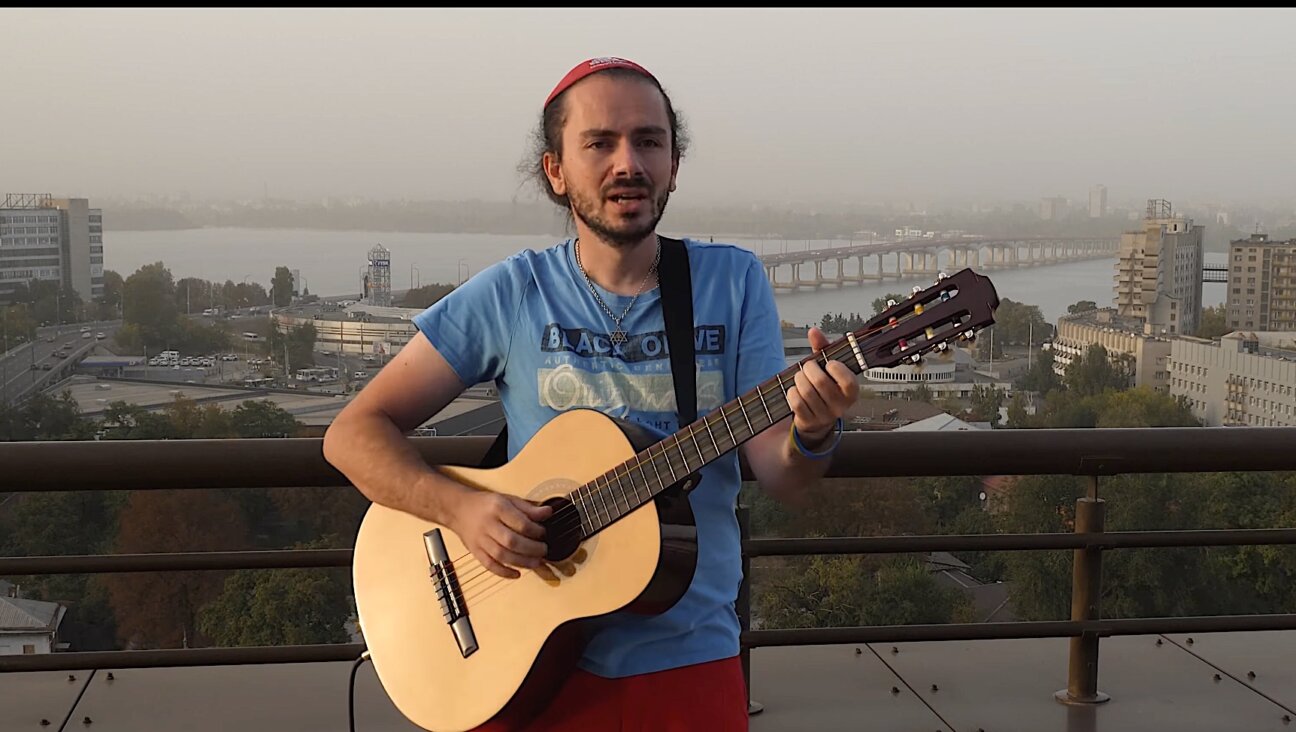Retiring to the City That Never Sleeps
Judy Goldman was restless.
Goldman, 65, had spent most of her life in Houston, where she raised her family, but after her husband died in 1989 and her children went off to college, Goldman wasn’t sure how to fill her days. She went back to school to become a registered nurse, but she found the work dreary.
Three and a half years ago, when some friends were about to sell a studio apartment in New York’s West Village, Goldman decided to buy it. Two of her children had settled in New York, and Goldman, originally from Philadelphia, planned to divide her time between New York and Houston.
But Goldman found that she didn’t really want to divide her time — she wanted to become a full-fledged New Yorker. Last year she sold her house in Houston and has since lived in Manhattan fulltime.
According to a survey of brokers at some of Manhattan’s elite real estate agencies, in the past four or five years hundreds of affluent Jews from the suburbs or out of state have decided to spend their golden years not in the pink-flamingo paradise of south Florida, but in the whitefish haven of New York.
While, according to AARP (formerly known as American Association of Retired Persons), most Americans tend to stay in their homes for as long as health and their finances allow, Jews attached to New York might be the exception to this rule.
“Jews are much more likely to [retire to the city] than gentiles,” said a specialist in social trends, Joel Kotkin, who is a senior research fellow at the Davenport Institute for Public Policy.
Kotkin said that while retirees tend to leave New York at probably twice the rate as those who choose to settle in the city, retirees who do adopt New York as their home tend to be “people who are affluent, people who are culture mongers…. Jews are vastly over-represented in that cohort.”
Fred Siegel, a senior fellow at the Progressive Policy Institute in Washington, concurs. “I know it’s happening,” said Siegel. Siegel says he observed a similar phenomenon in Highland Park, a predominantly Jewish town on the Gold Coast of Chicago. “In Highland Park you’ve got a good classic movie theater, a library, cultural events. It’s basically what people would retire to in Manhattan on a small scale.”
Siegel attributes the recent move to New York City to a number of different factors. People are retiring with higher incomes, and the city itself underwent a renewal. “Once crime came down, that became one of the key things,” said Siegel. “That’s a prerequisite.”
Siegel says that many cities will want to encourage this. “Mayors like to attract [retirees] because they’re low tax” cost, said Siegel. “They don’t have kids in public school, and they’re big spenders. Rich Daley [the mayor of Chicago] has thought about these people. They’re very attractive to have.”
Kotkin calls retirees like the Kramers and Goldman “a self-selected group of sophistos.” The retirees experience the many-sided splendor of a city that most natives are too busy to enjoy.
“Our son Danny says that we’re tourists,” said Fradie Kramer, who four years ago moved with her husband, Dr. Milton Kramer, having spent most of their lives in Ohio. “I came to New York a yokel. I was just besotted with the city.”
The Kramers have been exploring New York life in ways that New Yorkers rarely get a chance to. Dr. Kramer teaches a class at Maimonides Medical Center. Fradie Kramer sits on the boards of the National Labor Alliance and the New York Regional Committee and is a vice president of the Habonim Dror Foundation. They attend the theater, the opera and the ballet. “Our big thing is lectures,” said Fradie Kramer.
Likewise, listening to Goldman describe her day would make many native New Yorkers jealous. “New York is a smorgasbord, and I’m hungry,” Goldman said proudly. Goldman leads tours at the American Folk Art Museum, teaches a class on 1960s cinema at the New School University, is an active member of the Town and Village Synagogue, takes Talmud classes at the Skirball Institute and does volunteer work making audiocassettes of books for the blind.
Steven James, executive vice president at Douglas Elliman, one of the largest realtors in Manhattan, casually mentioned this phenomenon to some of his brokers and was stunned to hear how many of them had been selling to retirees from outside the city. “It was sort of a surprise, but not [really a surprise] because the city is quite wonderful,” said James. “You have the arts, part-time work for the elderly, health service, and it’s easy to get around. You can take a cab, get on the bus.”
“We always had two cars,” said Fradie Kramer. “We got rid of both of them, and we feel liberated. All of Manhattan is a no-parking zone, anyway.”
For the Kramers and Goldman, Manhattan has the additional advantage of being a Jewish cultural mecca. The Kramers regularly dine at their neighborhood Moroccan kosher restaurant and shop at the kosher butcher.
“The options for Jewish learning in New York are something that you can’t get anywhere else,” said Goldman. Goldman can’t understand why anyone would retire anywhere else. As she was about to expound on this, she cut herself off. “I didn’t think I would talk this long!” Goldman apologized to a reporter. “I’m late for my class!”
A message from our CEO & publisher Rachel Fishman Feddersen

I hope you appreciated this article. Before you go, I’d like to ask you to please support the Forward’s award-winning, nonprofit journalism during this critical time.
At a time when other newsrooms are closing or cutting back, the Forward has removed its paywall and invested additional resources to report on the ground from Israel and around the U.S. on the impact of the war, rising antisemitism and polarized discourse.
Readers like you make it all possible. Support our work by becoming a Forward Member and connect with our journalism and your community.
— Rachel Fishman Feddersen, Publisher and CEO






















